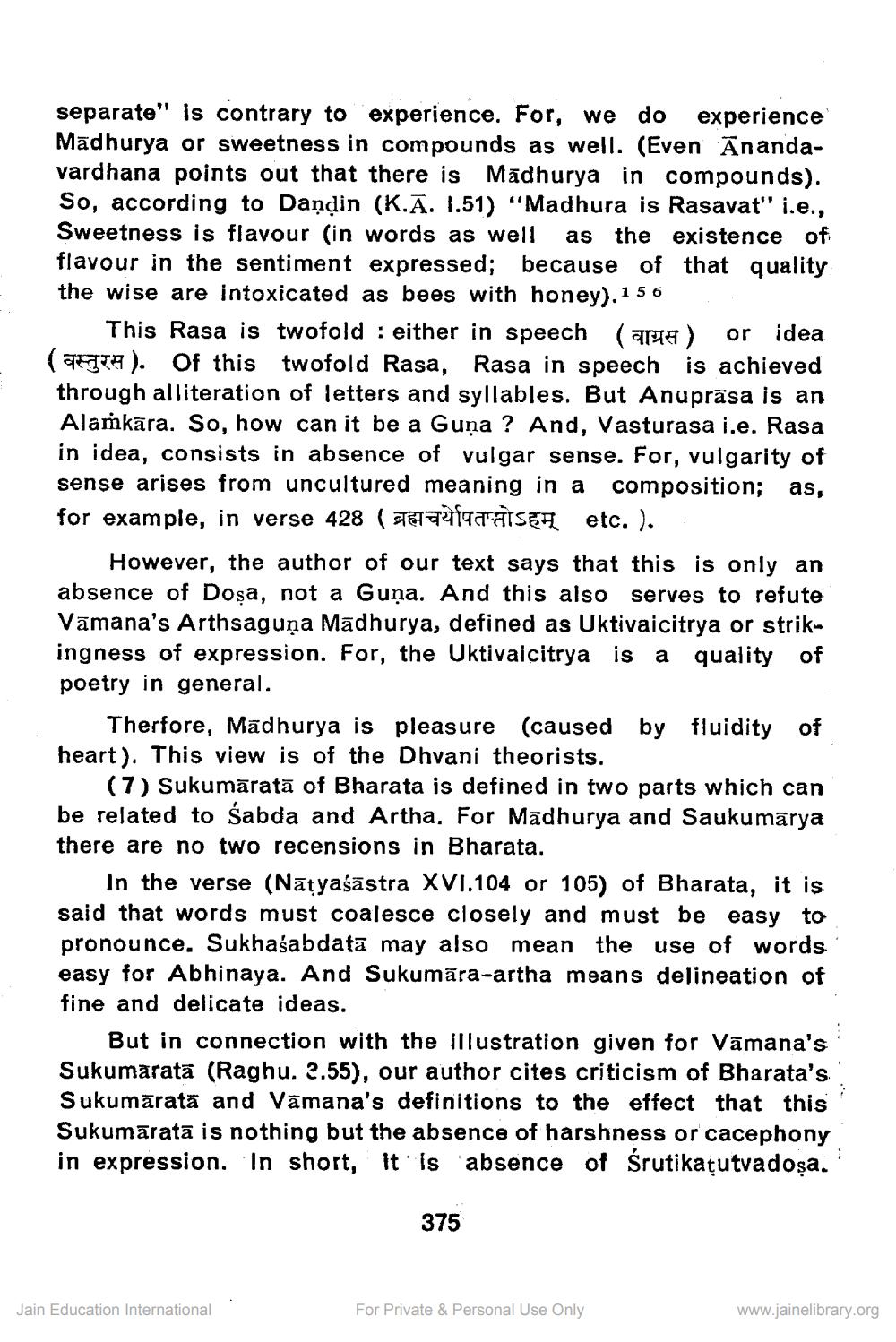________________
separate" is contrary to experience. For, we do experience Madhurya or sweetness in compounds as well. (Even Ānandavardhana points out that there is Mādhurya in compounds). So, according to Dandin (K.Ā. 1.51) "Madhura is Rasavat" i.e., Sweetness is flavour (in words as well as the existence of flavour in the sentiment expressed; because of that quality the wise are intoxicated as bees with honey). 1 5 6
This Rasa is twofold : either in speech (aria) or idea (ITA). Of this twofold Rasa, Rasa in speech is achieved through alliteration of letters and syllables. But Anuprāsa is an Alamkāra. So, how can it be a Guņa ? And, Vasturasa i.e. Rasa in idea, consists in absence of vulgar sense. For, vulgarity of sense arises from uncultured meaning in a composition; as, for example, in verse 428 ( E ITTÄISEE etc. ).
However, the author of our text says that this is only an absence of Doșa, not a Guņa. And this also serves to refute Vamana's Arthsaguņa Madhurya, defined as Uktivaicitrya or strikingness of expression. For, the Uktivaicitrya is a quality of poetry in general.
Therfore, Mādhurya is pleasure (caused by fluidity of heart). This view is of the Dhvani theorists.
(7) Sukumāratā of Bharata is defined in two parts which can be related to śabda and Artha. For Madhurya and Saukumārya there are no two recensions in Bharata.
In the verse (Nātyaśāstra XVI.104 or 105) of Bharata, it is said that words must coalesce closely and must be easy to pronounce. Sukhaśabdatā may also mean the use of words. easy for Abhinaya. And Sukumāra-artha means delineation of fine and delicate ideas
But in connection with the illustration given for Vāmana's Sukumaratā (Raghu. 2.55), our author cites criticism of Bharata's Sukumārata and Vāmana's definitions to the effect that this Sukumārata is nothing but the absence of harshness or cacephony in expression. In short, it is absence of śrutikațutvadoņa.
375
Jain Education International
For Private & Personal Use Only
www.jainelibrary.org




